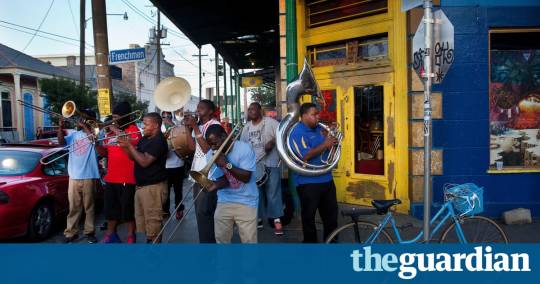#I have about 20 more Booker icons to make because he's so attractive
Photo










10 twitter-sized icons (400px) for Star Trek: Discovery Season 3
Credits and likes/reblogs are appreciated, but not mandatory. Have fun!
ID and tumblr-sized icons under the cut:
[ID 1: icon of Michiael Burnham in uniform from the shoulders up against a yellow background. Looking sideways, she is smiling brightly. Her long braided hair is tied. End ID]
[ID 2: icon of Sylvia Tilly from the shoulders up against an orange background. She is looking upward with a determined expression, as the wind blows in her hair in a ponytail. End ID]
[ID 3: icon of Michael from the shoulders up against a light blue background. She is looking down with an impish smile. She wears a uniform and her hair down. End ID]
[ID 4: icon of Emperor Georgiou from the shoulders up against a blue background. She is smirking slightly. She is dressed in a black coat and her hair is tied back. End ID]
[ID 5: icon of Keyla Detmer from the shoulders up against an orange background. She is looking before her in concentration. Her hair falls to one side of her face. End ID]
[ID 6: icon of Georgiou from the waist up against a pink background. She is crossing her arms and narrowing her eyes with an amused expression. She is dressed in black and her hair is tied back. End ID]
[ID 7: icon of Hugh Culber against a light green background from the shoulders up. His expression is full of worry, his lips parted. He is dressed in a light green vest. His face presents the distinctive Bajoran ridges. End ID]
[ID 8: icon of Adira Tal from the shoulders up against a blue background. They are looking over their shoulder with a reflective expression. They are wrapped in a blanket with a golden collar. End ID]
[ID 9: icon of Cleveland Booker from the chest up against a pink background. His hands are behind his back and he is smiling. He is dressed in a dark sweatshirt. End ID]
[ID 10: icon of Joann Owosekun from the shoulders up against a purple background. A concerned smile is painted across her features. Her long braids fall over her shoulders. End ID]










#Star Trek Discovery#startrekdiscoveryedit#discoveryedit#Michael Burnham#Philippa Georgiou#Cleveland Booker#Sylvia Tilly#Adira Tal#Hugh Culber#Keyla Detmer#Joann Owosekun#mine:disco#mygraphics#icons#I kinda screwed up the layout with the colours but hey#I have about 20 more Booker icons to make because he's so attractive#also Michael... an angel#this cast is too attractive
202 notes
·
View notes
Text
The final bar? How gentrification threatens America’s music cities
Austin, Nashville and New Orleans have thrived on the success of vibrant music scenes. But as rents rise and noise complaints become more common, do they risk ruining what made them famous in the first place?

At a Sixth Street bar in the heart of Austin, Texas a pop up version of Sebs jazz club from the Hollywood hit film La La Land is being set up its blue letters yet to be switched on. Nearby, a replica of Breaking Bads Los Pollos Hermanos fast food restaurant has appeared, causing a minor Twitter frenzy.
These are just two of the attractions materialising in the city in time for the music and media festival South by Southwest (SXSW), and throughout the 10 days of the event it is hard to find someone who isnt wearing an official SXSW wristband worth $1,000.
What started 30 years ago as a celebration of Austins local music scene, though, is now in danger of harming the very thing that made it unique. SXSW brings in hundreds of artists from around the world, 200,000 visitors and $325.3m (250m) to the citys economy. Its success has helped Austin establish music as a fundamental part of its development, but at the same time, as many as 20% of musicians in this self-appointed live music capital of the world survive below the federal poverty line.
According to a recent study by the Urban Land Institute, the city is in the effective 11th hour of the endangerment of the live music scene, brought on by Austins rapid growth it is now the fastest growing city in the US in terms of population, jobs and economy.
A downtown wall mural in the shadow of new high-rise construction in Austin. Photograph: George Rose/Getty Images
Its a difficult reality for the city to confront. Austin is one of the three major US music cities, alongside New Orleans and Nashville, that have capitalised on this local culture at the risk of ruining the scenes that made them famous in the first place. In Austin, the local live music scene is now paying the price for its success. Brian Block, of the citys economic development office, says despite an apparent city-wide financial boom, local musicians income is at best stagnating, and possibly declining.
Hayes Carll, a 41-year-old Grammy-nominated artist who recently won Austins Musician of the Year, says that for most Texans, Austin is the mecca of music cities. It was where it all came together: the songs, the record stores, the community, the identity. It was the first place I went where I could say Im a singer-songwriter and they didnt ask me what my real job was.
Music lives throughout Austins 200 or so venues, the annual music awards and festivals, and the many brilliant artists including Townes Van Zandt and Janis Joplin who have called it home. It was where Willie Nelson allegedly reunited the hippies and rednecks when he first went on stage at the Armadillo World Headquarters in August 1972. Today, Austins love of local creativity is immortalised in folk singer Daniel Johnstons Hi, how are you? mural, depicting his iconic alien frog near the citys university.
SXSW brings $325m to the Austin economy each year. Photograph: Larry W Smith/EPA
But despite this rich history, long-standing venues in Austins downtown Red River District are being forced to adjust to an influx of new neighbours mostly expensive condos or hotels. Rising rents have forced venues like Holy Mountain and Red 7 to close, while noise complaints are an ongoing problem hotels offer earplugs for a better nights sleep.
Therere some less than wonderful aspects to the growth process, and I know a lot of friends who have had to leave Austin, says Carll, a Texan who has lived here for 12 years. Austin is going to have to fight to keep some of the things that made it special like the affordability and how you could be yourself and do whatever you wanted. When you become the hot cool city that everybodys moving to, some of that freedom can get pushed out.
The city government is keen to stress that theyre working to preserve the live music scene. In 2013 the Red River District was given its cultural title to highlight its local significance. Block says they are now implementing a Red River extended hours pilot programme in the hope that an extra hour of live music on the weekend will bring increased revenues to help cope with rising costs, and more paid work for the musicians.
Willie Nelson performs in his annual 4th of July Picnic at the Austin360 Amphitheater. Photograph: Gary Miller/Getty Images
The city is also revising its land development codes for the first time in 30 years in an effort to raise the profile of entertainment districts. There are other support systems that come from outside government too, such as Haam which provides access to affordable healthcare for low-income musicians. Music is very important to the culture, to the local economy and I think it will remain so. Hopefully we can get ahead of the issues we know are coming, Block says.
But some feel its too late. Im worried Austin will change negatively, says Carll. Its great that Austins identity revolves around music, and that the city government is trying to do things to correct it. But none of that will matter if musicians cant afford to live there, or the venues are shut down because of noise complaints, or you cant get to the venue because youre stuck in traffic on the highway.
New Orleans: music from cradle to grave
Louis Armstrong and his All Stars in a still from director Arthur Lubins musical New Orleans. Photograph: Frank Driggs Collection/Getty Images
Across the state border in Louisiana, New Orleans is facing similar problems as it develops and gentrifies. There are fears that without local government actively supporting musicians, the scenes survival could be at risk.
How do you keep a [music scene] real and authentic and yet encourage people to get involved? Its a paradox, says Jan Ramsey, editor of local magazine OffBeat. Theres an authenticity to the music and the people who make it, and the integration of black and white culture here we never want to lose that.
John Swenson, journalist and author of New Atlantis, Musicians Battle for the Survival of New Orleans says the music accompanies you from the cradle to the grave; its born out of the neighbourhoods and permeates all levels of society. Jazz was born here, tracing back to the mixture of African drums and European horns played by slaves in the late 19th century; and part of its musical heritage is a long list of prodigious artists, from Louis Armstrong to James Booker.
The Spotted Cat. Photograph: Alamy
This culture attracts some 10 million tourists to the city each year. But what is unique about it and gives the scene greater strength is how it has become an invaluable lifeline for the citys regeneration after the devastation wrought by Hurricane Katrina in 2005.
In the Spotted Cat, one of the long-standing venues on Frenchmen Street, manager Cheryl Abana talks quietly as a jazz singer performs to a crowded room. For a couple of years [after Katrina] it was pretty sad here and the music scene really helped out with trying to get everyones spirits up. It really helped build the city up again, she says.
One of the most successful programmes to support the creative community following Katrina was Musicians Village, devised by Harry Connick Jr and Branford Marsalis alongside Habitat for Humanity. Situated in the Upper Ninth ward one of the places hardest hit by the hurricane it is a community of homes built by volunteers to support displaced musicians. Its a symbol to musicians that my community will be there when I get back; were going to keep that tradition alive, says Jim Pate, executive director of the New Orleans Area Habitat for Humanity.
A decade on, and artists of all genres and ages live in the village, including some of the godfathers of New Orleans heritage like Little Freddie King. The musicians came back to New Orleans because music lived here, says Swenson.
People listen to music at a home in Musicians Village. Photograph: Mario Tama/Getty Images
Nashville: the original music city
In Nashville, Tennessee, just a few blocks away from the famous honky tonk highway of Broadway, mayor Megan Barry sits in her office overlooking the state capitol. She is surrounded by motifs of Nashvilles music history: theres a framed photograph of DeFord Bailey sitting on the steps of the Ryman auditorium, the first African American to perform at the Grand Ole Opry; and in the foyer hangs a painting by Chris Coleman of Kings of Leon. He gave it to Barry as a gift.
Music is everywhere. Although it has a heritage as influential as New Orleans, here it spreads further: from inside the mayors office and the governments music council, to pretty much everyone you meet in the city who either plays it, writes it or listens to it (every taxi driver I meet is a musician; my Airbnb host is a songwriter).
As soon as I mention the phrase music cities, Barry interrupts jovially: Well, I think theres only one! Music has been part of Nashvilles foundations since the 1800s when it established itself as a centre for music publishing. Its heritage goes back to the Fisk Jubilee Singers who were based here the African American a cappella band who were the first musical group to tour the world, raising money for freed slaves. Upon hearing them, Queen Victoria allegedly coined Nashvilles title as a music city, which is now plastered across Tennessee billboards.
Bars and honky-tonks line Broadway in Nashville. Photograph: Brian Jannsen/Alamy
In 1925, WSM radio station was founded, which went on to broadcast the Grand Ole Opry now the longest running radio show in the US that gave rise to some of the greatest names in country music. Music Row, the 200-acre area near downtown at its peak housed 270 music publishers, 120 record production agencies, 80 record manufacturing companies, 80 booking agencies and more. Elvis Heartbreak Hotel was recorded here at RCA in 1956; Bob Dylans Blonde on Blonde was recorded nearby at Columbia Recording studios 10 years later.
Now, the $10bn industry music industry provides 56,000 jobs, supporting more than $3.2bn of labour income annually. We cant undersell its importance to our overall economic viability and continued growth and prosperity, says Barry.
Nashville is projected to grow by 186,000 residents and 326,000 jobs in the next 25 years, and like Austin, has to confront uncomfortable growing pains in the form of gentrification. But music is firmly intertwined with the citys municipal plans for how it will develop in the future.
DeFord Bailey was the first African American to perform at the Grand Ole Opry. Photograph: GAB Archive/Redferns
The city provides affordable housing for musicians, and music programmes for school children, as we know our graduation rates go up when kids are involved in music, says Barry. They go on and they have a career in music and then it feeds the job creation. Its about feeding that pipeline.
I think that although music evolves and changes, the ability for Nashville to grow and change with it has been part of our success.
At Dinos bar in east Nashville, 26-year-old musician Cale Tyson is sipping on a beer. He is one of thousands of artists who moved here because of its history. I feel like Nashvilles a town where musicians are treated really well. I dont think anythings closed off here, says the Texan singer-songwriter. In Nashville the competition and being around so many good artists forces you to work a lot harder.
People continue to migrate to Nashville because of this (about 100 a day), and this influx has inevitably changed the music scene for better or worse. The country music capital of the world which ignited the careers of Hank Williams, Johnny Cash, Loretta Lynn and Kitty Wells to name just a few is now home to a burgeoning hip hop scene in the citys so-called DIY clubs. Jack White moved in and set up a branch of Third Man records in 2009, while bands like Paramore, Kings of Leon and the Black Keys have all migrated here.
Nashville has even spawned a genre called bro country, where burly men sing about chewing tobacco and celebrate being a redneck (with lyrics that repeat red red red red redneck), their odd rap verses a world away from the original country music that formed the soul of this city.
But the commercialisation of Nashville has led to accusations that country music is dead. A few years ago US country singer Collin Raye made a heartfelt plea for the city to get back to its roots and remember the musicians who built and sustained the Nashville industry and truly made country music an American art form, he said. It needs to be that way once again. God Bless Hank Williams. God Bless George Jones.
And people are still trying to keep this alive. I dont think traditional country went away, says Brendan Malone who runs a traditional honky tonk an event celebrating country music in the east of the city. The fire was still kindling. It just needed to have some gasoline poured on it.
At Malones Honky Tonk Tuesdays, a man in a check shirt is barbecuing some ribs in the car park of the US army veterans club. Inside, ageing regulars sit at the bar nursing whiskeys to the sound of Hank Williams on the juke box.
In the main room, men and women of all ages wearing Stetsons and western shirts take turns two-stepping with each other as the band covers songs of Ernest Tubb and Red Foley. They perform against a backdrop of the US flag laid out in fairy lights.
Theres a sincere sense of pride in Nashvilles history here, despite how far the city and its culture has changed. With support from the mayors office to the local community, it seems Nashville took a bet on music and it paid off.
Follow Guardian Cities on Twitter and Facebook to join the discussion, and explore our archive here
from All Of Beer http://allofbeer.com/the-final-bar-how-gentrification-threatens-americas-music-cities/
2 notes
·
View notes
Text
Start Your Success Daily Morning Routines
As stated before in my previous post WAKE UP:
Tim Ferris discovered that one of the most common factors amongst the people he interviewed for his book Tools of Titans (where he compiles the tactics, routines, and habits of billionaires, icons, and world-class performers) is that they all implement some form of morning routine.
I told you how to wake up now I'm going to help you figure out what to do now that you're awake.
You want to have a routine that you can see yourself easily completing every morning.
Set the bar low so that you can successfully win each morning. If you win the morning, then that can catapult you into winning the day. The first 30-90 minutes of your day, depending on how intricate your routine or lack thereof, can either improve or handicap the rest of your day. These small things, done daily, can change your life.
"Be faithful in small things because it is in them that your strength lies." -- Mother Teresa
"Success in life is founded upon attention to the small things rather than to the large things; to the every day things nearest to us rather than to the things that are remote and uncommon." -- Booker T. Washington
"Great things are done by a series of small things brought together." -- Vincent Van Gogh
I will share detailing my own morning routine and share two routines that I used as inspiration. I suggest emulating one of these routines or one that you may research after reading this, to begin with. This will allow you to adjust to having a routine. After you are accustomed, then I suggest customizing and combining things to fit your personal lifestyle.
My Daily Morning Routine
Initial Silence
When I First Wake Up in the morning I start with what I call my "first silence." Basically, I don't touch my phone, I lay and think through everything running through my mind when I first wake up.
Respond to Texts, Say Good Morning, NOTHING ELSE
I try to limit my initial phone use to only sending a few first texts so that I don't get dragged into mindlessly scrolling through all my apps and end up losing an hour of my day.
Meditation
Meditation! I thought this was all mumbo jumbo but... This right here has gotten me going and inspired me to start every day with purpose. This is of like my second silence, a more active one. I initially started with guided meditation through the app Headspace and used it until it the 10-day trial was up, after that, it is like $100 a year... I'm not ready for that commitment. So I went on and found Insight Timer which has endless free guided meditations to use, I usually listen to Morning Ritual by Jason McGrice. Taking time to breathe and relax is really great for clearing your mind and focus for the day.
Affirmations
I stand in the mirror and say my affirmations aloud while emotionally connecting with every word I say. I can honestly say by having these thoughts in my mind has seemed to subconsciously draw me towards the person I want to become.
5 Minute Journal
I fill out the 5-Minute Journal through its app. Initially, I started in my journal with my "Daily 3s" that I was posting. I found that I was either censoring or worrying about what people saw that I wrote so I decided to keep them personal in order to be more open with my personal thoughts. This is also where I begin planning what I want to get done for the day.
Read 20 Pages
I have a personal goal of reading 10 books this summer (I've gotten 8/10 down!) so I try to read at least 20 pages a day. Reading personal development or philosophy books in the morning and throughout has completely transformed my thinking and behavior. You become what you surround yourself with.
This is my customized morning ritual which has been derived from these two examples below. I will explain in detail with my takeaways from them.
5 MORNING RITUALS THAT HELP ME WIN THE DAY
by Tim Ferris “Tools of Titans”
1. Make Your Bed (<3 minutes)
Legendary Naval Admiral William McRaven, who has commanded at every level within the Special Operations community, including acting as head of Joint Special Operations Command (JSOC) during the Osama bin Laden raid. From his University of Texas at Austin commencement speech:
“If you make your bed every morning, you will have accomplished the first task of the day. It will give you a small sense of pride, and it will encourage you to do another task and another and another. By the end of the day, that one task completed will have turned into many tasks completed. Making your bed will also reinforce the fact that little things in life matter.”
2. Meditate (10 to 20 minutes)
3. Do 5 to 10 Reps of Something (<1 minute)
“The 5 to 10 reps here are not a workout. They are intended to “state prime” and wake me up. Getting into my body, even for 30 seconds, has a dramatic effect on my mood and quiets mental chatter.”
4. [Prepare a cup of coffee or tea] (2 to 3 minutes)
To fight grogginess
5. Morning Pages or 5-Minute Journal (5 to 10 minutes)
Morning pages don’t need to solve your problems. They simply need to get them out of your head, where they’ll otherwise bounce around all day like a bullet ricocheting inside your skull.
It may be the most important aspect of trapping thought on paper (i.e., writing) you’ll ever encounter. Even if you consider yourself a terrible writer, writing can be viewed as a tool. There are huge benefits to writing, even if no one—yourself included—ever reads what you write. In other words, the process matters more than the product.
An example of his Morning Page:
SUNDAY, DEC. 28, NEW YORK
Woke up at 7:30 a.m., before everyone else. Feels great.
It’s a Sunday, so I feel I can take it slow, which is probably the reason it feels great. Why should Monday or Tuesday be any different? There are still people waiting regardless. Let them wait.
It’s funny how we work and aim and strive to get to a point where people wait for us, not the other way around. Cue Get Shorty!
And yet, when we arrive at this vaunted point, the masses of people (often rightly) incessantly knocking on the door, one after another, causes far more stress than when you were a mere peon (sp)! [I was unsure of spelling.]
Is it because of the 100x more inbound, which decreases a feeling of self-directed free will? A feeling that you’re constantly choosing from someone else’s buffet instead of cooking your own food?
Or is it because you *feel* you must be defensive and protect what you have: time, money, relationships, space, etc.?
For someone who’s “won” through a lifetime of offense, of attacking, playing the defensive game conflicts with the core of who they are.
The 5-Minute Journal is simplicity itself and hits a lot of birds with one stone: 5 minutes in the morning of answering a few prompts, and then 5 minutes in the evening doing the same. Each prompt has three lines for three answers.
“To be answered in the morning:
I am grateful for . . .
1. __________ 2. __________ 3. __________
What would make today great?
1. __________ 2. __________ 3. __________
Daily affirmations. I am . . .
1. __________ 2. __________ 3. __________
To be filled in at night:
3 amazing things that happened today . . .
1. __________ 2. __________ 3. __________
How could I have made today better?
1. __________ 2. __________ 3. __________”
The Life S.A.V.E.R.S.: 6 Practices Guaranteed To Save You From A Life of Unfulfilled Potential
by Hal Elrod "The Miracle Morning"
The Life S.A.V.E.R.S are 6 powerful, proven personal development practices that you can use to gain access to the powerful forces within you that will enable you to alter, change, or transform any area of your life.
The acronym stands for:
Silence
Affirmations
Visualization
Exercise
Reading
Scribing
Silence
Start every morning with a period of purposeful silence
Examples:
Meditation
Prayer
Reflection
Deep Breathing
Gratitude
Don’t stay in bed while doing this, preferably leave your bedroom. This deters you from falling back asleep.
Affirmations
We must stop programming ourselves for a life of mediocrity by focusing on what we're doing wrong, being too hard on ourselves when we make mistakes, and cause ourselves to feel guilty, inadequate, and undeserving of the success we really want.
You can use affirmations to start programming yourself to be confident and successful in everything you do, simply by repeatedly telling yourself who you want to be, what you want to accomplish and how you are going to accomplish it.
Tips:
In order for affirmations to be effective, it is important that you tap into your emotions while you read them
Stand tall while reading them
ALWAYS UPDATE
Be consistent
Visualization
The practice of seeking to generate positive results in your outer world by using your imagination to create mental pictures of specific behaviors and outcomes occurring in your life.
Many highly successful individuals, including celebrities, have advocated the use of visualization, claiming that it's played a significant role in their success. Such stars include Bill Gates, Arnold Schwarzenegger, Anthony Robbins, Tiger Woods, Will Smith, Jim Carey, and Oprah.
Many people don't feel comfortable visualizing success and are even scared to succeed. Some people may experience resistance in this area. Some may even feel guilty that they will leave the other 95% behind when they become successful.
The greatest gift we can give to the people we love is to live to our full potential. What does that look like for you? What do you really want? Forget about logic, limits, and being practical. If you could have anything you wanted, do anything you wanted, and be anything you wanted—what would you have? What would you do? What would you be?
Visualizing your goals and dreams is believed by some experts to attract your visions into your life
Exercise
Morning exercise significantly boosts your energy, enhances your health, improves self-confidence and emotional well being, and enables you to think better and concentrate longer
Reading
The key is to learn from the experts—those who have already done what you want to do. Don't reinvent the wheel. The fastest way to achieve everything you want is to model successful people who have already achieved it.
With an almost infinite amount of books available on every topic, there are no limits to the knowledge you can gain through daily reading
Even if you only read 10 pages a day that will become 3650 pages a year which is around 18 books that consist of 200 pages
If you read 18 books on personal development in the next 12 months do you think that you would be more knowledgeable, capable and confident?
Scribing (Writing)
Journaling
My favorite form of Scribing is journaling, which I do for 5-10 minutes during my Miracle Morning. By getting your thoughts out of your head and putting them in writing, you gain valuable insights you'd otherwise never see. The Scribing element of your Miracle Morning enables you to document your insights, ideas, breakthroughs, realizations, successes, and lessons learned, as well as any areas of opportunity, personal growth, or improvement.
Benefits of keeping a journal:
Gain Clarity - The process of writing something down forces us to think through it enough to understand it. Journaling will give you more clarity, allow you to brainstorm, and help you work through problems.
Capture Ideas - Journaling helps you not only expand your ideas but also prevents you from losing the important ideas that you may want to act on in the future.
Review Lessons - It enables you to review all of the lessons you've learned.
Acknowledge Your Progress - It's wonderful to go back and re-read your journal entries from a year ago and see how much progress you've made. It's one of the most empowering, confidence-inspiring and enjoyable experiences. It can't really be duplicated any other way.
Hopefully, you were able to pull some valuable information from this post.
Feel free to comment on this post as well as message me on instagram: @carltun
Also if you liked this content share it with a friend, or your instagram/snapchat stories!
Help spread the personal development wave!
1 note
·
View note